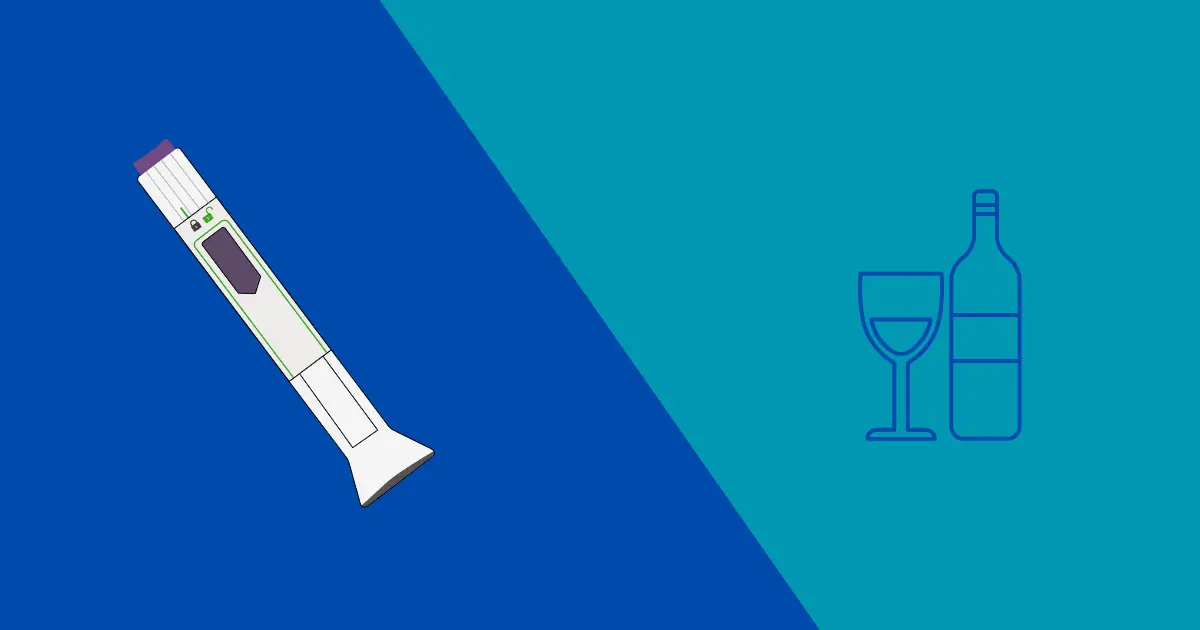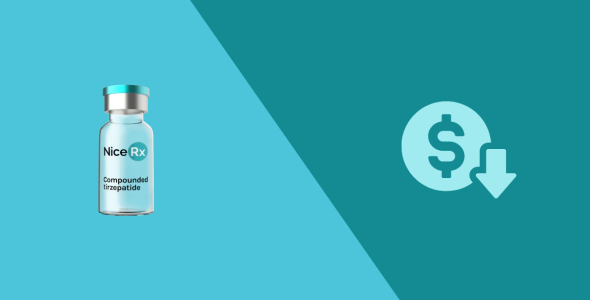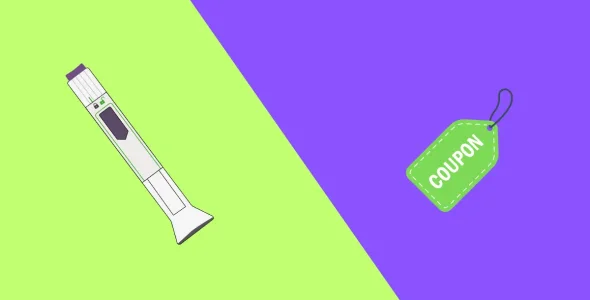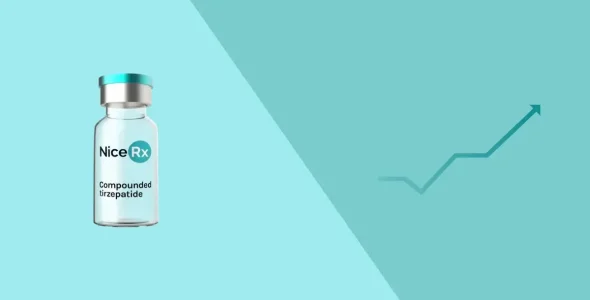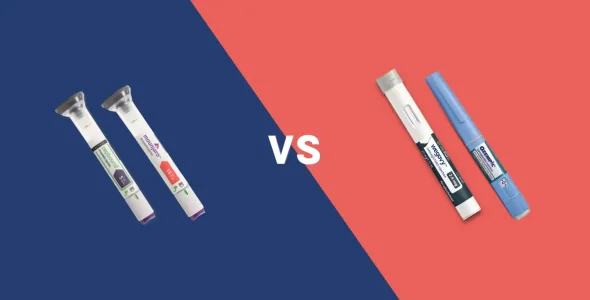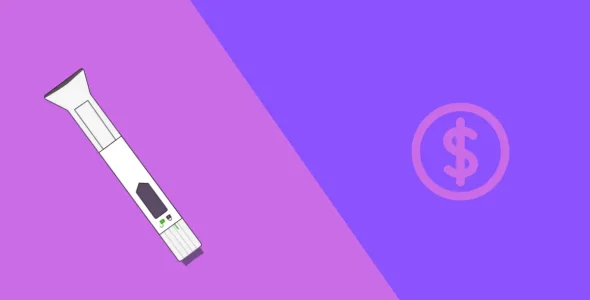Tirzepatide and alcohol: Is it safe?
Can you drink alcohol on tirzepatide without sabotaging your results—or making side effects worse? Keep reading to find out.
Key highlights
- Tirzepatide is an FDA-approved GLP-1/GIP receptor agonist available as two brand names: Mounjaro for type 2 diabetes mellitus and weight loss (off-label) and Zepbound for chronic weight management.
- Healthcare providers recommend avoiding or limiting alcohol on tirzepatide as it counteracts the benefits of tirzepatide and also worsens the side effects such as nausea, vomiting, diarrhea and constipation
- Tirzepatide (Mounjaro) is a glucose-lowering medication. Combining alcohol with tirzepatide amplifies the risk of hypoglycemia, which can be life-threatening.
- Alcohol may also raise the risk of rare but serious complications associated with tirzepatide, such as pancreatitis and kidney disease.
- Consult with your healthcare provider if you want to drink alcohol on tirzepatide. They will advise you whether alcohol is safe for you and, if so, how much is acceptable.
Tirzepatide is an injectable medication approved by the U.S. Food and Drug Administration (FDA) for treating individuals with type 2 diabetes and obesity, with two brand names, Mounjaro (type 2 diabetes mellitus) and Zepbound (chronic weight management). The medication acts as a dual receptor agonist for GLP-1 (glucagon-like peptide-1) and GIP (glucose-dependent insulinotropic polypeptide) receptors. Mounjaro also promotes weight loss, but the medication is not FDA-approved for weight loss. Your healthcare professional may prescribe this medication off-label for weight loss. Zepbound is an FDA-approved medication for chronic weight management and managing weight-related complications such as moderate to severe obstructive sleep apnea.
Alcohol is a part of many people’s social lives. Therefore, a common question may arise in your mind while using tirzepatide for blood sugar control or weight management: Can I drink alcohol while taking tirzepatide? The answer is not a straightforward yes or no, as it depends on how much alcohol you are consuming and how your body responds to alcohol. Although there is no direct chemical interaction between tirzepatide and alcohol, alcohol intake with tirzepatide carries several risks.
Tirzepatide causes some side effects during the first few weeks and the dose escalation period, such as nausea, vomiting, diarrhea and constipation. Drinking alcohol also irritates your stomach lining and causes the same side effects, resulting in worsening of the symptoms. In addition, alcohol also lowers blood glucose levels. Combining alcohol and tirzepatide may also increase the risk of hypoglycemia, particularly if you are on insulin or other glucose-lowering medications.
If you want to drink alcohol while on tirzepatide, limit your alcohol intake, avoid drinking alcohol on an empty stomach, stay hydrated, keep a track of your symptoms, and discuss with your health care provider before consuming alcohol or if you experience any side effects.
In this article, we will discuss how tirzepatide (Mounjaro and Zepbound) works, whether you can drink alcohol on tirzepatide, and how alcohol affects the medication.
How tirzepatide works and why alcohol might interfere
Tirzepatide is a dual GLP-1 and GIP receptor agonist, available as two brand names: Mounjaro (for type 2 diabetes mellitus) and Zepbound (for weight loss). This medication is composed of 39 amino acids and has a structural similarity to gastric inhibitory polypeptide.
Tirzepatide has a unique dual action as it activates both GLP-1 and GIP receptors simultaneously, unlike other older drugs that only activate GLP-1 receptors (semaglutide, liraglutide, and dulaglutide). GLP-1 receptor agonists increase insulin secretion, delay gastric emptying, and promote appetite suppression. GIP receptors enhance glucose secretions, increase glucose sensitivity and enhance fat metabolism. This dual effect of tirzepatide promotes better blood sugar control and significantly more weight loss than other glucagon-like peptide-1 receptor agonists (Ozempic, Rybelsus and Wegovy), which makes tirzepatide more effective in managing blood sugar levels and obesity.
If you’re using tirzepatide to improve your blood sugar level and weight, regular or heavy drinking (alcohol) may affect your health goals. Alcohol counteracts the effect of tirzepatide, potentially leading to overeating, swings in blood sugar levels, and reduced efficacy of tirzepatide. Combining alcohol with tirzepatide also increases the risk of pancreatitis and kidney damage or acute kidney injury.
Tirzepatide mimics the activity of two naturally occurring incretin hormones (GLP-1 and GIP), which are released in response to food and are involved in regulating your blood sugar levels, weight, and metabolic functions. This medication works in the following ways:
Increase insulin secretion
Tirzepatide binds with the GLP-1 receptors in the pancreas and enhances insulin secretion in a glucose-dependent manner (only when the glucose level is high), which reduces the spikes in blood sugar level after a meal and also lowers the risk of hypoglycemia. Drinking alcohol with tirzepatide may impair insulin secretion in your body, which can cause fluctuations in blood sugar levels.
Appetite suppression and satiety
Tirzepatide reduces gastric contractions and allows food to stay in the stomach for a longer time after meals, leading to reduced hunger and increased satiety. In contrast, alcohol can increase blood sugar levels due to its high sugar content and counteract the effect of tirzepatide, which may cause weight gain.
Tirzepatide delays gastric emptying, due to which alcohol is absorbed slowly, and the side effects of alcohol may also be delayed. Additionally, you may experience less inclination toward drinking alcohol or binge drinking due to the appetite-suppressing effect of tirzepatide.
Blood sugar regulation
Tirzepatide is an FDA-approved medication controlling blood sugar levels (Mounjaro) and obesity (Zepbound). People consuming alcohol with tirzepatide are at a higher risk of blood sugar fluctuation. This medication suppresses the secretion of glucagon (a hormone that promotes glucose synthesis) by acting on the alpha cells of the pancreas, which helps lower blood sugar levels. However, the risk of hypoglycemia doubles in individuals who consume alcohol with tirzepatide.
Promote weight loss
Tirzepatide plays an important role in promoting weight loss in individuals with type 2 diabetes (Mounjaro off-label) and obesity or overweight (Zepbound). This medication reduces appetite and hunger cravings by sending satiety signals to your brain and helps with weight loss. In contrast, drinking alcohol with tirzepatide may lead to binge eating, resulting in weight gain.
Side effect profile
Tirzepatide is generally well-tolerated but is associated with gastrointestinal side effects. These side effects usually occur in the initial phase or during the dose escalation period. Most common side effects include:
- Nausea
- Vomiting
- Diarrhea
- Constipation
Alcohol is a cytotoxic substance which can directly damage the mucosal lining of the stomach, increase acid secretion and cause inflammation in the stomach. This can lead to the same side effects as tirzepatide. Therefore, consuming alcohol while on tirzepatide can increase the risk of side effects.
Potential conflict
Tirzepatide is a well-known medication for weight loss and blood sugar control. Consuming alcohol with tirzepatide can affect the results, worsen the GI side effects and reduce the efficacy of the medication.
Does alcohol directly interact with tirzepatide?
Alcohol does not directly interact with tirzepatide (Mounjaro and Zepbound), but it counteracts the beneficial effects of tirzepatide.
The manufacturer of tirzepatide, Eli Lilly, and most healthcare providers advise limiting alcohol while using tirzepatide due to these indirect risks. Eli Lilly does not prohibit the use of alcohol in the Mounjaro prescription information. However, it is advised to reduce alcohol intake while taking this medication.
The following are some important considerations to keep in mind while consuming alcohol with tirzepatide:
Direct interactions
Current research indicates no direct pharmacokinetic interaction between alcohol and tirzepatide. This means that alcohol does not affect the absorption, metabolism, and elimination of tirzepatide in the human body, and tirzepatide also does not affect alcohol metabolism.
Indirect interactions and risks
Alcohol and tirzepatide are two different substances with no direct chemical interaction with each other. However, alcohol can still cause indirect interactions leading to reduced effectiveness of tirzepatide and increase the risk of side effects, like hypoglycemia, gastrointestinal side effects (nausea, vomiting, diarrhea, constipation), and liver stress.
Risks of mixing tirzepatide and alcohol
Tirzepatide improves blood sugar levels and supports weight loss. Consuming alcohol regularly, particularly in excess amounts, can directly undermine these effects and increase the risks of potential side effects.
Increased side effects
Consuming alcohol with tirzepatide can amplify the side effects of the medication.
Tirzepatide commonly causes gastrointestinal side effects, especially when you start the medication or during the dose escalation period. These common side effects include the following:
- Nausea
- Vomiting
- Diarrhea
- Constipation
- Stomach pain
- Heart burn
- Burping
- Gas or bloating
These side effects are typically more common in the first few weeks or when the dose is increased. These are usually temporary and subside gradually, but can become severe or intolerable, depending on your health status and your body’s tolerance.
Dizziness and dehydration risk
Consuming both tirzepatide and alcohol increases the risk of dehydration because alcohol and tirzepatide cause dual dehydration effects.
Tirzepatide causes diarrhea and vomiting, resulting in dehydration and electrolyte imbalance.
Alcohol acts as a diuretic that promotes fluid loss, which leads to dehydration.
Thus, combining alcohol and tirzepatide can cause moderate to severe dehydration that affects your body in the following ways.
- Dizziness: Dehydration causes a decrease in blood volume, which can lower your blood pressure. Due to this, your brain receives less blood, resulting in dizziness or lightheadedness.
- Fatigue: Your body depends on fluid to produce energy. Without enough fluid, your body cannot produce enough energy to meet daily body requirements, resulting in fatigue.
- Headache: Dehydration can cause your brain to temporarily contract or shrink, and also narrows blood vessels in the brain that trigger headache. This effect is most common in individuals who consume alcohol regularly because alcohol not only dehydrates you, but also triggers migraine in sensitive individuals.
- Strain on the kidney: When you are dehydrated, blood flow to the kidneys is decreased, and toxins start to build up in the blood. Your kidneys work harder to remove these toxins, which can cause additional stress that leads to acute kidney injury (AKI).
Hypoglycemia
Tirzepatide (Mounjaro) reduces blood sugar levels by acting on GLP-1 and GIP receptors in the body. Alcohol also inhibits the glucagon activity in the liver. Consuming both can significantly increase the risk of hypoglycemia, which can be a life-threatening condition. Hypoglycemia symptoms include:
- Dizziness
- Sweating
- Confusion
- Headache
- Increase heart beat (tachycardia)
- Fainting
Alcohol’s GI-related effects
Consuming alcohol on an empty stomach can disrupt the mucosal lining of your stomach, which causes the following side effects.
- Nausea
- Vomiting
- Diarrhoea
- Constipation
- Hypoglycemia
- Stomach pain
Combining tirzepatide and alcohol can significantly worsen these symptoms, leading to more intense discomfort.
Reduced weight loss results
Tirzepatide promotes appetite suppression and weight loss, but alcohol can undermine these effects in several ways.
Alcohol and other beverages are often high in calories but provide little or no nutritional value. These calories counteract the effect of the calorie deficit achieved by tirzepatide.
Tirzepatide helps suppress your appetite and reduce cravings. Alcohol opposes the effect of tirzepatide. It increases appetite, leading to late-night eating, overeating and cravings for high-fat and high-carb foods.
Alcohol doesn’t directly affect your metabolism, but it affects how your body burns energy. Heavy or chronic alcohol use can indirectly slow your metabolism and promote fat storage, which leads to weight gain.
Blood sugar management
Consuming alcohol with tirzepatide impairs your blood sugar control. Sweet alcoholic drinks, such as cocktails or sugary wines, can spike your blood sugar levels. In addition, heavy alcohol use can also affect your liver metabolism, which plays a key role in regulating blood glucose levels. This can make blood sugar control more challenging for individuals with type 2 diabetes mellitus.
Liver concerns
Both alcohol and tirzepatide mechanisms rely on the hepatic pathway. Tirzepatide is not a hepatotoxic medication. However, in rare cases, tirzepatide can cause liver stress, but the exact mechanism is unknown. Therefore, if you have a pre-existing liver disease, seek medical advice from your healthcare professional before starting tirzepatide.
Risk of pancreatitis
Pancreatitis is the inflammation of the pancreas, a gland located behind the stomach and responsible for digestion and blood sugar control. It can be acute or chronic depending on the duration of the disease. Pancreatitis can present with abdominal pain that radiates to the back, nausea, vomiting, and fever.
Consuming tirzepatide is rarely associated with a risk of pancreatitis. However, if pancreatitis is suspected, stop the medication. Drinking alcohol is one of the most common causes of pancreatitis. There is no clear evidence that combining alcohol and tirzepatide directly increases the risk of pancreatitis beyond the individual effects. However, caution is advised for those who have a history of pancreatitis or heavy alcohol use before starting tirzepatide.
Risk of kidney damage
Tirzepatide can cause gastrointestinal side effects such as nausea, vomiting and diarrhea, especially during the dose escalation period. These side effects are temporary and subside on their own. However, if the side effects are severe and go untreated, this can lead to moderate or severe dehydration. Consuming alcohol with tirzepatide is not recommended because alcohol acts as a diuretic that also causes dehydration and electrolyte imbalances. In addition, drinking alcohol on an empty stomach can irritate the GI tract, resulting in nausea, vomiting, diarrhea and stomach pain, which can also exacerbate the dehydration.
When you are dehydrated, blood volume decreases and blood pressure drops, resulting in decreased blood supply to the kidneys and elevated serum creatinine levels that put strain on the kidneys. Tirzepatide can cause kidney damage due to volume depletion, but it happens rarely. However, combining both alcohol and tirzepatide can significantly increase the risk of kidney damage. The risk of kidney damage with tirzepatide and alcohol is an important consideration.
Tirzepatide and alcohol risks
| Risk Factor | Tirzepatide Alone | Alcohol Alone | Tirzepatide + Alcohol |
|---|---|---|---|
| Dehydration Severity | Moderate (GI loss: vomiting, diarrhea) | High (suppresses ADH → fluid loss) | Severe (additive dehydration + fluid loss) |
| Electrolyte Imbalance | Mild (mainly sodium loss) | Severe (loss of K⁺, Mg²⁺, PO₄³⁻) | Critical (compounded electrolyte depletion) |
| AKI Risk | Low (if well hydrated) | Moderate (risk increases with binge drinking) | High (hypoperfusion + toxic load + dehydration) |
| Long-term CKD Risk | Minimal (in absence of baseline CKD) | High (especially with chronic alcohol use) | Accelerated (synergistic damage over time) |
Hypoglycemia (low blood sugar) risks
Tirzepatide, specifically Mounjaro, is used for managing blood sugar levels in individuals with type 2 diabetes mellitus. The medication lowers blood sugar levels by mimicking the activity of GLP-1/GIP receptors in your body, promoting insulin secretion in a glucose-dependent manner, suppressing glucagon activity, reducing appetite and delaying gastric emptying.
Alcohol can also lower your blood pressure and sugar levels by affecting glucagon activity in the liver, especially if consumed on an empty stomach or in large amounts.
Combining tirzepatide and alcohol significantly increases the risk of hypoglycemia, which can cause dizziness, shakiness, headache, confusion, sweating, and rapid heart rate.
If you have type 2 diabetes mellitus, you should have regular follow-ups with your healthcare provider and do rigorous blood sugar monitoring if you are consuming alcohol along with the medication.
Tirzepatide can also be used in non-diabetic individuals for weight loss (off-label). However, non-diabetic individuals consuming tirzepatide for weight loss may experience blood sugar fluctuations with alcohol due to the glucose-lowering action of the medication. Consult with your doctor if you are experiencing blood sugar fluctuation while taking tirzepatide for weight loss.
Can you drink alcohol on tirzepatide?
Alcohol consumption is not prohibited completely with tirzepatide, but caution is advised to avoid side effects. There is no defined safe amount of alcohol while using tirzepatide. It highly depends on your health status, current medications, dosage, tolerance and drinking habits.
If you are choosing to drink alcohol with tirzepatide, it is necessary to follow general health guidelines to ensure your safety. According to the general health guidelines, if there is no contraindication, moderate alcohol consumption includes:
- 1 drink per day for women
- 2 drinks per day for men
The following factors should be considered before drinking alcohol with tirzepatide.
- Dosage: Higher doses of tirzepatide often lead to more pronounced side effects than lower doses. Therefore, consuming alcohol with higher doses of tirzepatide can amplify gastrointestinal side effects.
- Tolerance: If you have a history of gastrointestinal issues like gastritis or sensitivity to alcohol, combining alcohol with tirzepatide can significantly increase the risk of side effects.
- Frequency of drinking: Individuals who are heavy drinkers may experience more severe side effects when combined with tirzepatide than those who drink less frequently.
Here are some tips for drinking alcohol safely while on tirzepatide if your doctor approves occasional drinking:
- Never drink on an empty stomach, because it can irritate your stomach’s inner wall and lead to GI side effects and hypoglycemia.
- Choose low-sugar, low-calorie alcoholic beverages to avoid post-drink blood sugar spikes (e.g., dry wine, spirits with zero-calorie mixers).
- Always be mindful of portion sizes and the frequency of drinking. Avoid heavy drinking.
- Stay well-hydrated with water alongside alcohol to prevent dehydration and electrolyte imbalance in your body.
- Regularly monitor your blood sugar (especially if you are diabetic) to ensure safety.
- Be aware that alcohol tolerance might decrease due to weight loss or reduced food intake on tirzepatide.
Tirzepatide is generally prescribed for managing blood sugar levels, supporting weight loss and reducing the risk of cardiovascular events (long-term benefit). Drinking alcohol will negate these effects. Therefore, choosing to limit or avoid alcohol will help you meet your health goals.
Guidelines for drinking safety (if you choose to)
Your healthcare provider will typically first advise you to avoid or limit alcohol on tirzepatide. However, if you choose to drink on tirzepatide, the following tips can help you avoid complications:
- Limit your alcohol intake to 1 to 2 drinks per day. Avoid heavy drinking because it will increase the risk of side effects
- Alcoholic drinks are usually high in sugar or carbs that can spike your blood sugar levels. Therefore, choose low-sugar options such as dry wine, light beer, and spirits with zero-carb mixers to avoid high blood sugar levels.
- Drinking on an empty stomach leads to faster alcohol absorption and can irritate the stomach lining, which can cause complications. Therefore, eat before drinking to slow alcohol absorption.
- Monitor your symptoms. If you feel dizzy or nauseated, do not drink alcohol along with the medication.
- Alcohol acts as a dehydrating agent. Therefore, keep yourself hydrated to counteract dehydration.
Tirzepatide and alcohol FAQs
Will alcohol make tirzepatide less effective for weight loss?
Yes, alcohol can make tirzepatide less effective for weight loss. Although it does not directly interfere with the mechanism of action of tirzepatide, it reduces its efficacy through several indirect factors, such as increased calorie intake, reduced inhibition leading to overeating and poor food choices, slower fat metabolism, and a higher risk of hypoglycemia and gastrointestinal side effects. These side effects are challenging and may make it harder for you to remain consistent with your treatment. Therefore, if you want to achieve the desired results with tirzepatide, it is advised to limit or avoid alcohol intake.
Can I have a glass of wine on tirzepatide?
Yes, you can occasionally drink a glass of wine on tirzepatide, but it should be done in moderation. Occasional drinking of 1 drink of wine per day is considered safe. Heavy drinking reduces the efficacy of medication and increases the risk of potential side effects. Always consult with your healthcare professional before drinking wine while on tirzepatide.
How long after tirzepatide can I drink alcohol?
You can drink alcohol on the same day you inject tirzepatide because there is no direct chemical interaction between these two. However, it is recommended to consume alcohol after a few hours of tirzepatide to see how your body reacts. Tirzepatide causes side effects such as nausea, vomiting, diarrhea and constipation, which may worsen due to alcohol. Therefore, if you are feeling unwell after the medication, avoid drinking alcohol.
Does alcohol cause pancreatitis with tirzepatide?
Tirzepatide rarely cause pancreatitis. Drinking alcohol is a known risk factor for pancreatitis. Therefore, drinking alcohol with tirzepatide will increase the risk of pancreatitis. If you have a history of pancreatitis or alcohol abuse, consult with your healthcare provider before using tirzepatide. Look for the symptoms of pancreatitis, and if you notice any symptoms, discuss them with your healthcare professional.
Tirzepatide and alcohol cravings
Emerging research and anecdotal reports on social media have increasingly suggested that tirzepatide (a dual receptor GLP-1/GIP agonist) may reduce alcohol craving or alcohol addiction. In a clinical trial that involved 153 obese (BMI 30 or greater) individuals, participants who were taking tirzepatide or other GLP-1 medications reported reduced cravings for alcohol and alcohol dependence as compared to non-alcoholics.
GLP-1 receptors are located in the nucleus accumbens and ventral tegmental area. These areas are also responsible for dopamine activation, which is a chemical that makes us feel good after eating or drinking alcohol. Tirzepatide reduces the activity of dopamine, which may suppress the pleasurable effect of alcohol. This is why most people noticed reduced alcohol cravings while taking tirzepatide. This could be a beneficial “side effect” for some, leading to a natural reduction in alcohol consumption without conscious effort. However, this is still under research.
When to speak to your doctor
Always consult with your doctor if you are thinking of consuming alcohol while on tirzepatide. Your doctor will help you make safe choices based on your health condition. They should have a clear picture of how often and how much alcohol you drink per day or week. Discussion with your doctor may include:
- Is drinking alcohol your daily routine or used as a coping mechanism?
- Be honest in your replies so your doctor can assess whether drinking alcohol can affect the impact of tirzepatide on your body.
- Give your detailed medical history to your doctor, as certain conditions like pancreatitis, kidney disease, and diabetes can cause serious outcomes
- Tell your doctors if you are experiencing any side effects such as nausea, vomiting, diarrhea and constipation.
- Share your personal health goals with your doctor, such as why you are taking tirzepatide.
Only your doctor can provide tailored advice based on your unique health profile, medication regimen, and risk factors. However, if struggling with alcohol consumption, your doctor can also provide resources or referrals for support.
Conclusion: Drinking alcohol with caution when using tirzepatide
Alcohol and tirzepatide do not chemically interact with each other. However, drinking alcohol on tirzepatide carries significant risks due to overlapping side effects such as nausea, vomiting, constipation, and diarrhea. It also slows down your progress and nullifies the benefits of tirzepatide. Combining alcohol may also increase the risk of rare but serious complications such as pancreatitis and kidney damage.
It is strongly recommended to avoid or limit alcohol use if you are on tirzepatide to avoid overlapping side effects and get the desired results. It is important to consult with your doctor before combining alcohol with tirzepatide to seek medical advice and guidance regarding drinking alcohol.
